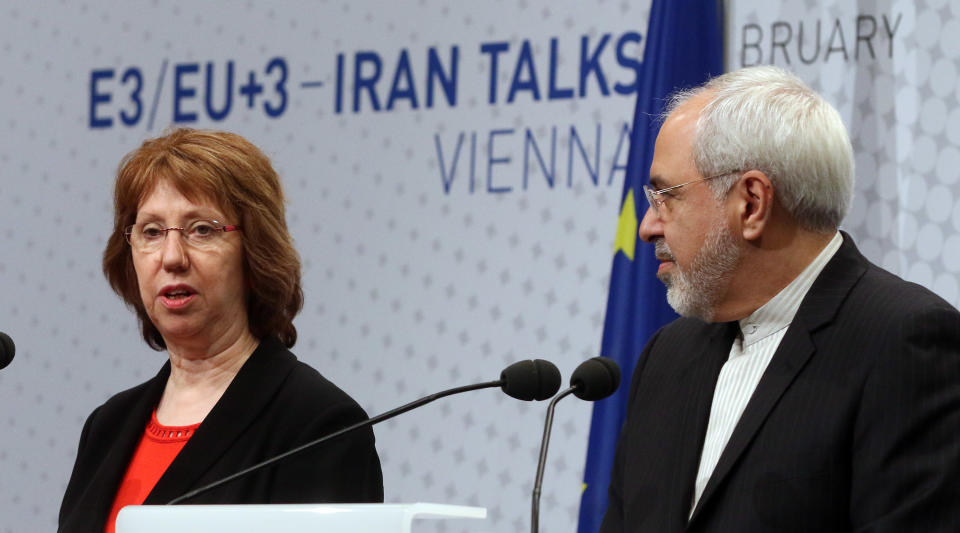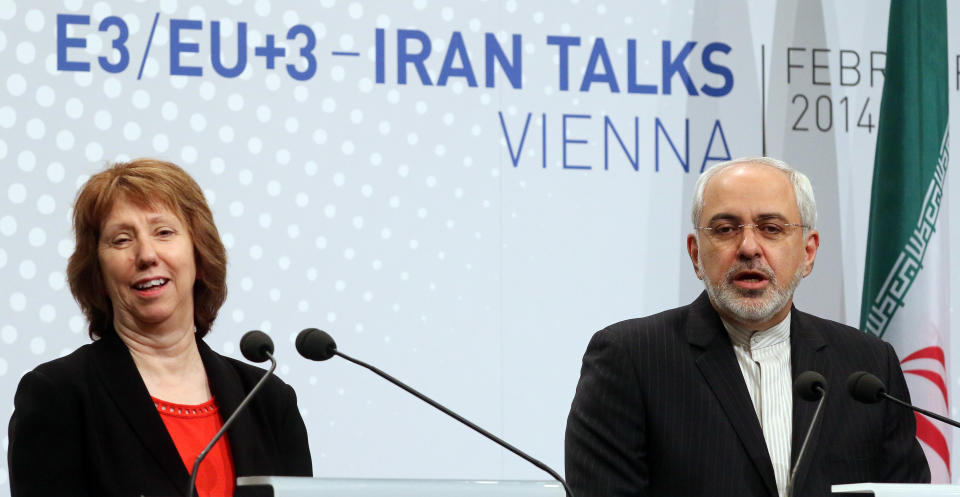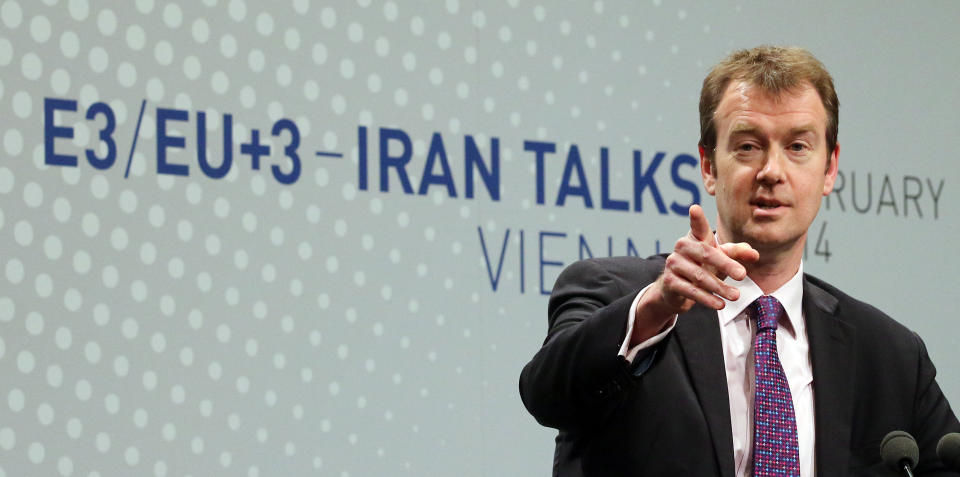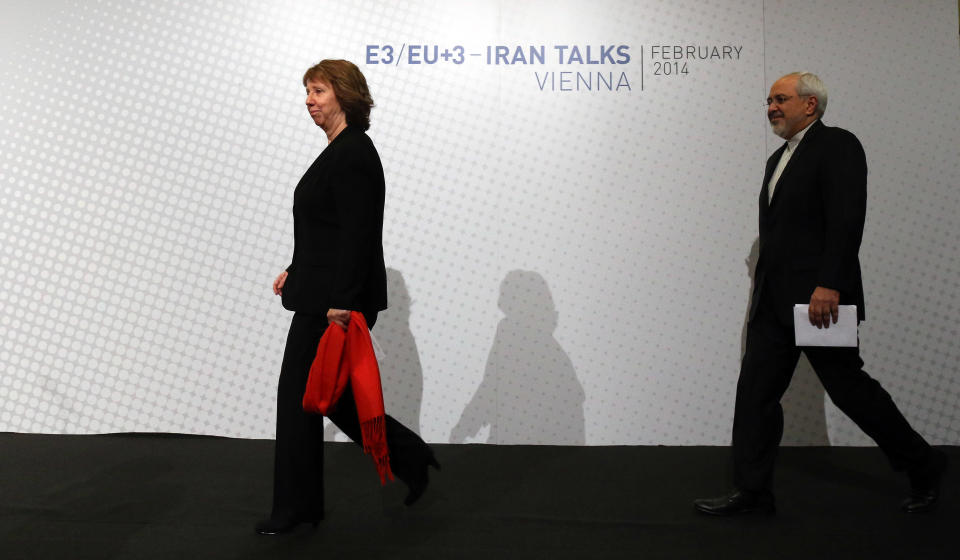EU says Iran nuclear talks off to 'a good start'
VIENNA (AP) — Iran and six world powers on Thursday ended nuclear talks with agreement on a framework for future negotiations but little progress on the main issue of what nuclear concessions Tehran must make in exchange for an end to sanctions stifling its economy.
In a joint statement at the end of three-day talks, officials for both sides said they would meet again in Vienna on March 17, continuing a process likely to take at least six months and probably longer.
Separately, the U.N. nuclear agency confirmed that Tehran is meeting its commitments under the first-step pact that led to this week's negotiations, which seek a more ambitious deal.
The agency noted that Iran's stockpile of nuclear material that can be turned quickly into the fissile core of a nuclear warhead had diminished by nearly 20 percent to 161 kilograms (355 pounds) under the first-step agreement, which took effect last month.
Expectations had been modest as the talks started Tuesday. The announcement of an agreement on future talks appeared aimed in part to raise hopes that the negotiations had a chance to succeed.
Iranian Foreign Minister Mohammad Javad Zarif, who came to the talks vowing that Iran would never strip down its nuclear facilities, was smiling and relaxed as he read out the joint statement.
But in a message apparently intended for skeptics at home who fear that Iran will give up too much, he told state TV afterward that his nation would "not close down any site."
The six on the other side of the table — the United States, Russia, China, Britain, France and Germany — want Tehran to agree to significant cuts in its nuclear program.
Iran opposes cuts, saying its program is not aimed at building weapons. The United States and its partners say Iran must accept an agreement if it wants an end to sanctions crippling its economy.
"We have ... identified all of the issues we need to address for a comprehensive and final agreement," said Catherine Ashton, the EU's top diplomat, who convened the negotiations.
"It won't be easy, but we've gotten off to a good start," she said in a statement read later in Farsi by Zarif.
A Western diplomat said Ashton would visit Tehran March 9-10 to lead EU-Iran talks. He demanded anonymity because his information was confidential.
From Baghdad, Russian Foreign Minister Sergey Lavrov said Moscow sensed that "all sides are interested in being serious and being pragmatic."
The talks are designed to build on a first-step deal that commits Iran to initial nuclear curbs in return for some easing of sanctions. The deal can be extended by mutual consent after six months.
Under terms of that accord, Iran has already begun to carry out a series of steps. They include diluting or converting its stockpile of higher enriched uranium and not to make any more for the next six months.
Iran also agreed not to increase its stockpile of lower-enriched uranium and not to set up new centrifuges at its enrichment plants as well as to rigorous oversight by the U.N. nuclear agency.
Sanctions being suspended during this interim agreement include those on Iran's petrochemical exports, its trade in gold and precious metals, its car industry and the supply of parts for Iran's civil aviation industry. No new sanctions will be imposed while the first-step deal remains in effect.
In a report Thursday, the U.N.'s International Atomic Energy Agency said Iran was keeping its side of the bargain.
The agency commended Iran's "positive step forward" in granting greater access to nuclear facilities. But alluding to the agency's efforts to identify whether Tehran was working secretly on nuclear weapons, the report said "much remains to be done to resolve all outstanding issues."
All six countries want to leave Iran with little capacity to ramp up its nuclear program into weapons-making mode with enriched uranium or plutonium.
They say Iran should dismantle or store most of its 20,000 uranium-enriching centrifuges, including some not yet working. They also want a reactor that is currently under construction either to be scrapped or converted from a heavy-water setup to a light-water facility that makes less plutonium.
___
Associated Press reporters Margaret Childs in Vienna and Sinan Salaheddin in Baghdad contributed to this report.






